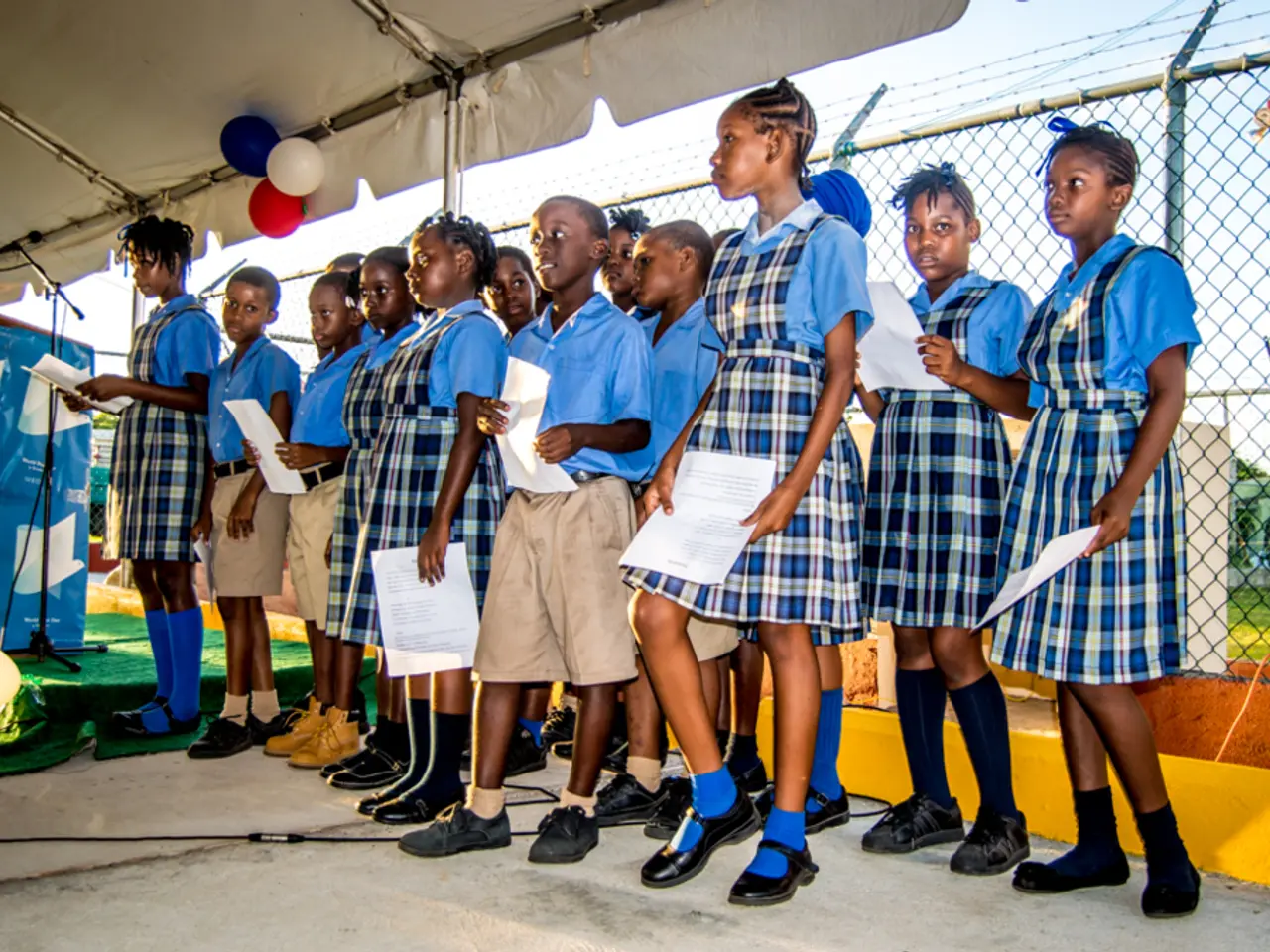Escalating teacher assaults trigger class officials' warnings
In recent years, governments and education systems worldwide have been taking significant steps to address the rising issue of violence against teachers. This includes physical assaults, verbal abuse, and threats, which have become increasingly prevalent in schools.
One of the key approaches being adopted is the promotion of whole-school approaches, as advocated by organisations like UNESCO. These strategies aim to prevent all forms of school violence, including physical fights, bullying, cyberbullying, and sexual harassment, by engaging the entire education sector and stakeholders beyond the school environment. By developing safer learning environments through preventive education, policies, and community involvement, these measures seek to create a culture of respect and safety in schools [4].
Training for educators and staff in de-escalation techniques and restorative justice practices is another common strategy. This is evident in some U.S. school districts, such as Lakewood, New Jersey, where such trainings are being implemented to address behavioural issues proactively and manage conflicts before they escalate into violence [3].
Teachers themselves have identified advocacy for smaller class sizes, better disciplinary support from administrators, increased mental health supports, and more paraprofessionals as crucial in managing student behaviour and reducing violence. Many educators report a lack of parental and administrative support, highlighting a need for systemic change in support structures [1].
Enhanced communication strategies with parents and stricter policies on disruptive issues like cellphone usage have also been recommended to reduce behavioural problems [1]. In response to school shootings and gun violence, there is growing attention to the mental health of educators and the need for their voices in safety debates. Survivors of incidents like Sandy Hook emphasise the psychological toll on teachers and the need for trauma-informed support and safety preparedness [5].
Violence against educators has led to increased workers’ compensation claims, prompting employers and governments to address workplace safety for educators more seriously. In the U.S., for example, over 1,000 assault claims have been reported in recent school years [2].
However, many educators stress that sustained administrative support and systemic investment in resources remain critical gaps to be addressed. Gerhard Brand, federal chairman of the VBE, expressed concern about the high level of violence against teachers, stating that politics should prioritize the protection of teachers in schools and implement measures to ensure school safety [6].
The VBE is advocating for more stringent protection measures in schools, including increased financial support from municipalities for school security measures. Preventive work is often hindered by staff shortages, with four out of five school principals naming this as a barrier. Moreover, nearly one in five school principals report that school authorities do not want to report cases of violence, and lack of support from school authorities, uncooperative perpetrators, and bureaucratic hurdles often hinder the support of affected teachers [7].
In conclusion, governments and education systems are combining policy reforms, training programs, mental health services, and community engagement initiatives to tackle violence against teachers and create safer school environments globally. However, sustained administrative support and systemic investment in resources remain critical gaps to be addressed.
Read also:
- Kamala Harris announces her ongoing political plans-for the present time
- Genetic Rarity Explored: Insights into Science, Struggles, and Misconceptions Surrounding Albinism
- Smoking Secondhand: Impact, Frequently Asked Questions, and Additional Information
- Strategies for Mitigating Negative Feelings in Customer Interaction with Your Goods or Services




